‘I haven’t been busy in a really long time’: The on-demand grandkids tackling loneliness
With isolation finally being recognised as a disease, Rina Raphael explores the companies providing rent-a-grandchild services, uniting the elderly with younger people with shared interests
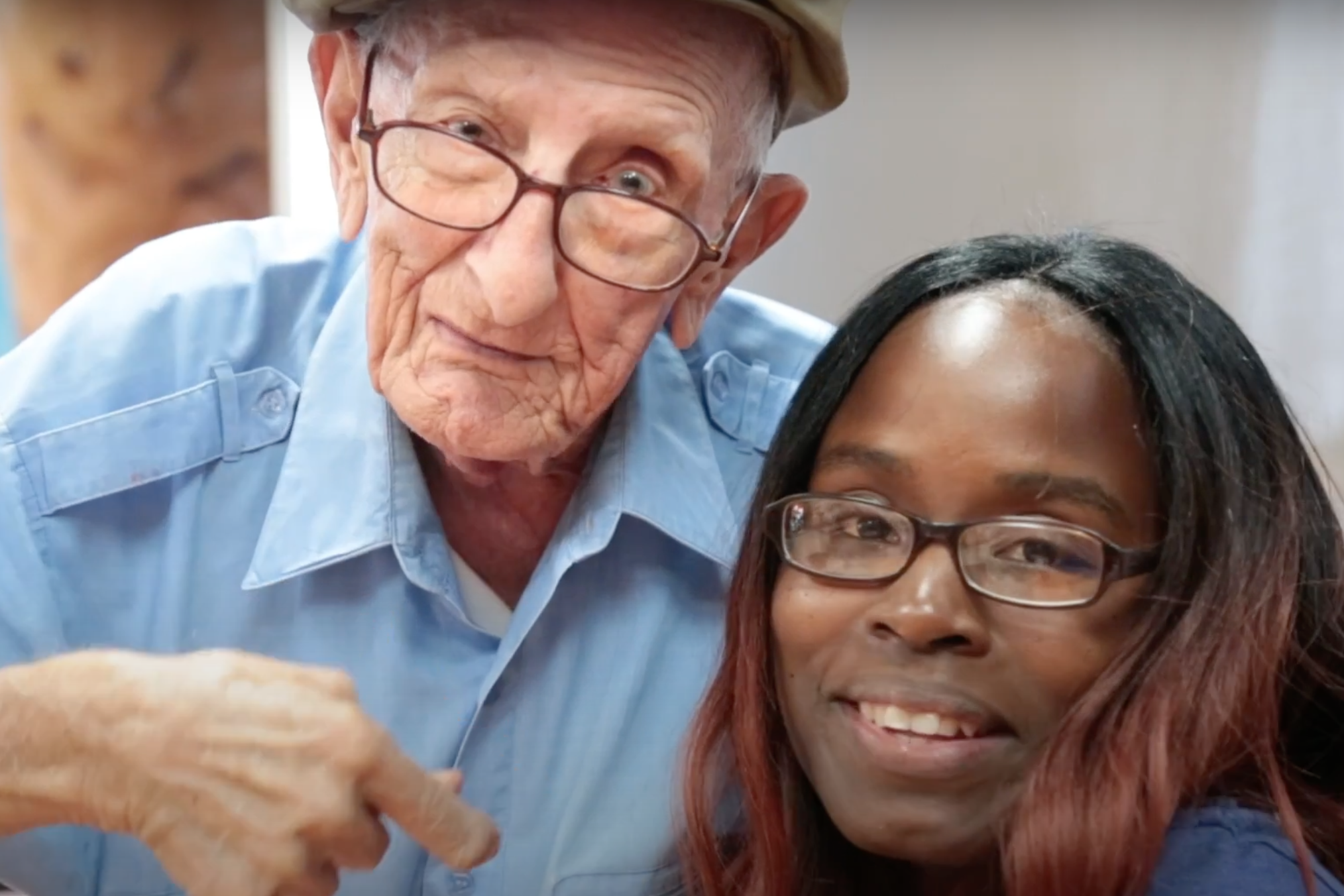
Your support helps us to tell the story
From reproductive rights to climate change to Big Tech, The Independent is on the ground when the story is developing. Whether it's investigating the financials of Elon Musk's pro-Trump PAC or producing our latest documentary, 'The A Word', which shines a light on the American women fighting for reproductive rights, we know how important it is to parse out the facts from the messaging.
At such a critical moment in US history, we need reporters on the ground. Your donation allows us to keep sending journalists to speak to both sides of the story.
The Independent is trusted by Americans across the entire political spectrum. And unlike many other quality news outlets, we choose not to lock Americans out of our reporting and analysis with paywalls. We believe quality journalism should be available to everyone, paid for by those who can afford it.
Your support makes all the difference.Bill Rodger, 91, often finds himself sitting on a worn flower-print couch in his living room in North Hollywood, California, facing a wall of accolades that document his long life. There are photos of Rodger over the decades winning sports tournaments and posing with grandchildren. There are golf medals, plaques and the most recent addition, a monthly bird calendar. “I’d rather be busy, but I haven’t been busy in a really long time,” Rodger says. “I guess going to the doctor keeps me busy.”
The admission warrants a warm pat on Rodger’s shoulder from a smiling young man sitting beside him. Ricardo Figueroa, 31, isn’t a family member or carer or even a neighbour. He’s a paid companion who was connected to Rodger through Papa, a health-tech company that provides “grandkids on demand”. Before the new coronavirus pandemic, the two spent hours together each week – running errands, going to dialysis appointments or just watching movies. Today, their relationship is restricted to phone calls, but they remain close.
“The whole situation is so scary,” says Figueroa on the phone, from his home. “So just talking to him is so uplifting.”
Likewise, Rodger says, “It’s good to hear from him!”
The two men are a good match by design. Founded in 2018, Papa pairs older adults with college students and young workers who have common interests and hobbies. Rodger and Figueroa are both military veterans who enjoy documentaries, sports and an occasional beer, and they live within a few blocks of each other.
But whereas the 5,000 Papa Pals once played card games or worked on memoirs with the seniors they have befriended, today they are FaceTiming or calling each other to discuss a world in disarray.
Some have shifted to running errands, picking up groceries or prescriptions. For these and other tasks, they make between $11 (£8.80) and $14 an hour, not including tips and covered expenses like petrol, on a freelance basis. (Papa is currently available in 20 US states; the company typically charges clients $20 to $25 an hour.)
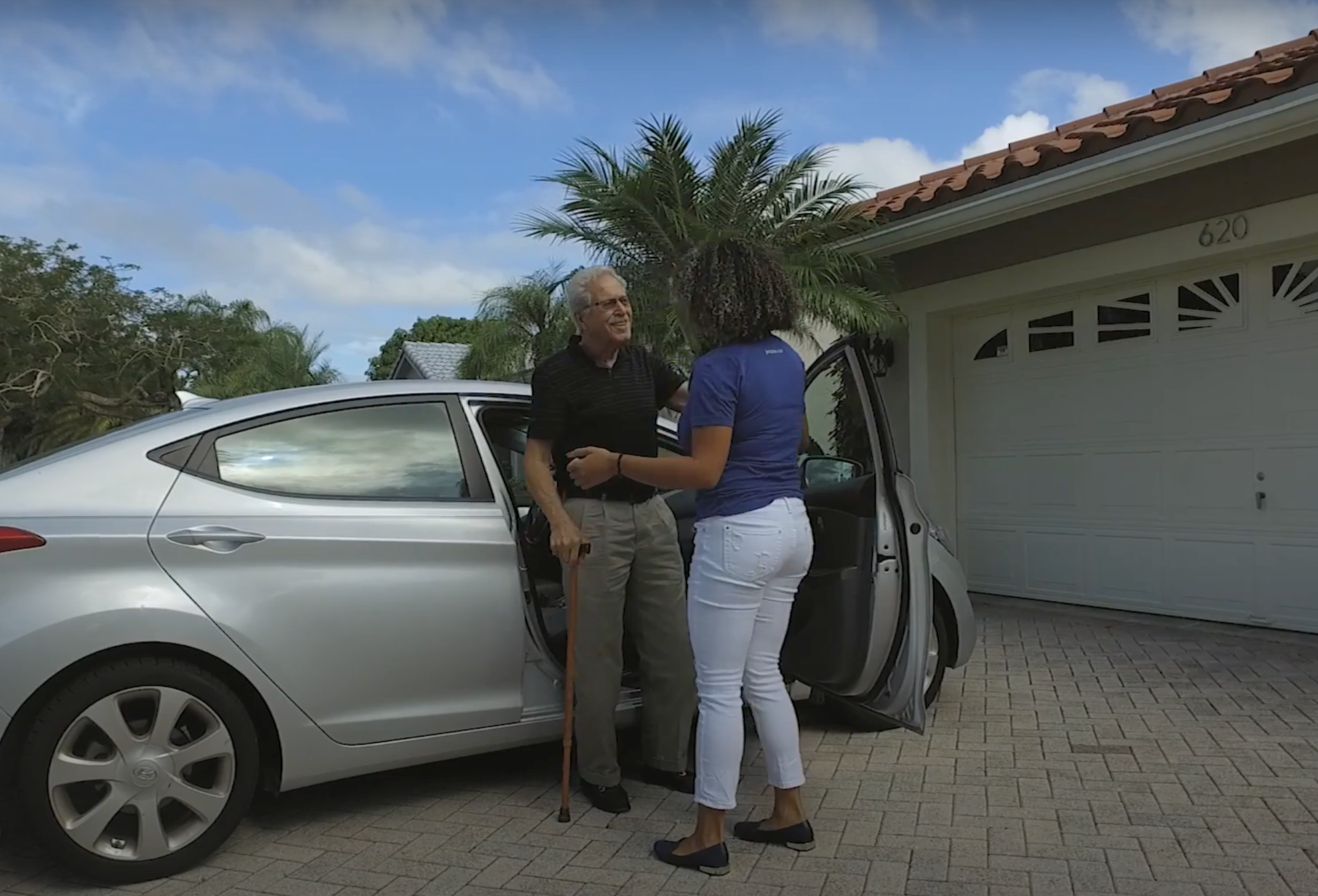
Despite the low wage, this is still vital work. According to a 2018 AARP Foundation survey, roughly one-third of older adults in the United States are socially isolated, a condition that is linked to increased health risks, including heart disease, cancer, depression, diabetes and suicide. Vivek Murthy, the former US surgeon general, has written that loneliness and social isolation are “associated with a reduction in life span similar to that caused by smoking 15 cigarettes a day”.
And the problem has an effect on the healthcare system. Last year, there were thousands of emergency room visits in Dallas that had nothing to do with physical ailments at all. The patients were just completely socially isolated, without anyone to turn to for help. “Loneliness is now finally being recognised as a disease, not only at a personal level, but also from a healthcare perspective,” says Andrew Parker, 32, who founded Papa in 2018.
Rodger didn’t qualify to have further assistance covered by his health insurance, but he also couldn’t afford a private carer, which can cost about $300 a day in Los Angeles
His company is one of several that aims to be a stopgap, and health insurers who may be looking to cut costs have begun to take notice. Rodger’s family is paying for Papa because of a conundrum: Rodger’s granddaughter Tanya Martin had been his primary carer for more than four years. But once Rodger needed dialysis, it became too much for her to handle with her full-time job as an aeroplane mechanic. He didn’t qualify to have further assistance covered by his health insurance, but he also couldn’t afford a private carer, which can cost about $300 a day in Los Angeles, according to the prices Martin was quoted.
“He doesn’t need medical care – he needs another me,” says Martin, 40, who discovered Papa through a Google search.
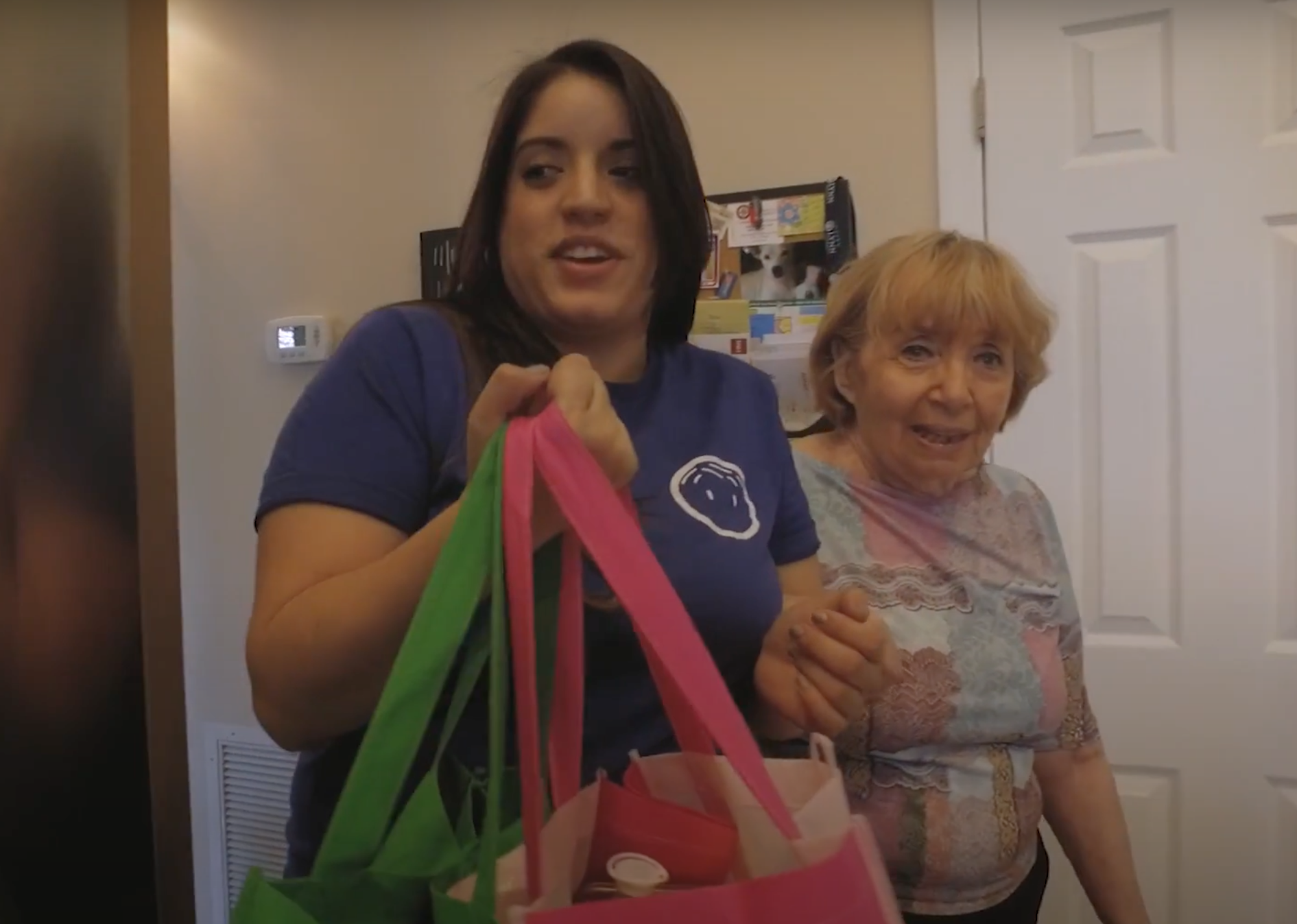
During the pandemic Martin is working from home, but she still doesn’t have enough time to simultaneously care for her grandfather and eight-year-old son. The new arrangement is that Figueroa checks in on Rodger socially, while another Papa pal transports Rodger to dialysis. “There’s no other option,” Martin says. “This saved my home, saved my career.”
It’s a very tough time to be one of the 1.5 million Americans who currently live in nursing homes. About one-fifth of US Covid-19 deaths are linked to nursing facilities, and employees, who are often poorly paid and have multiple jobs, are overtaxed and afraid for their own families. Visitors have been banned, heightening the atmosphere of fear and isolation.
Even before the pandemic, caregivers and aides were often overtaxed, tasked with helping many residents and with little time to socialise. Emotional support can be hard to come by.
“There’s no real meaningful conversation,” says Liz Barlowe, president of the Aging Life Care Association, a nonprofit representing senior care professionals. “There is that lack of connectedness, of being present and hyper-focused on one person.”
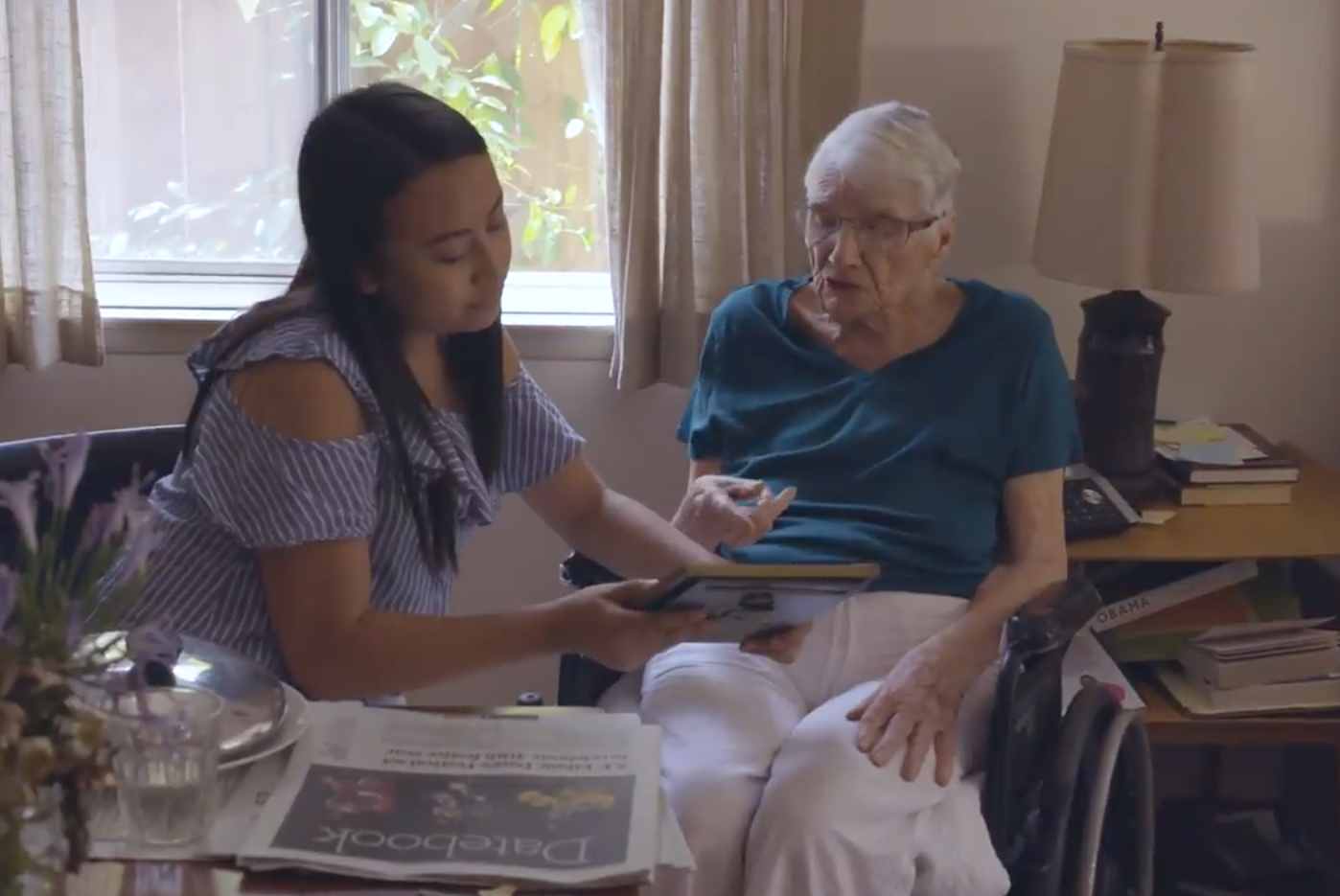
So Mon Ami, another company that facilitates senior companion services through nursing homes and for individuals, recently set up a volunteer phone bank to support older people isolated by shelter-in-place orders. It drew 300 hundred volunteers within days. (The company’s founders, Madeline Dangerfield-Cha, 32, and Joy Zhang, 31, say that Mon Ami’s paid companions have also shifted to phone calls or virtual visits, staying in touch with seniors by putting on mini concerts, reading books aloud and instructing gentle movement exercises.)
One of those volunteers is Morgan Steele, 25, a clinical research coordinator at Stanford University.
I want to get into golfing now, thanks to him. As soon as we’re clear to go out, we’re definitely going to get out there in the field
She was recently paired with Hugh Ping, 77, with whom she chats several times a week. Mon Ami suggests that companions and clients chat for 15 to 30 minutes at a time, “but we can talk well over half an hour without even realising it,” Steele says.
Hugh’s daughter, Deanna Ping, says it has been challenging to strip her sociable father from the small interactions that were “very major to him”: he loved venturing out from his home in the Bay Area to go to the shops and to restaurants where he knew all the staff. “It brings me a lot of peace to know there are others to talk with him,” Ping says.
Often, in conversation with Steele, Hugh compares the current situation to having lived through the Cuban missile crisis when he was in the Air Force. “He talks about a time where people didn’t know if their whole world was ending,” Steele says.
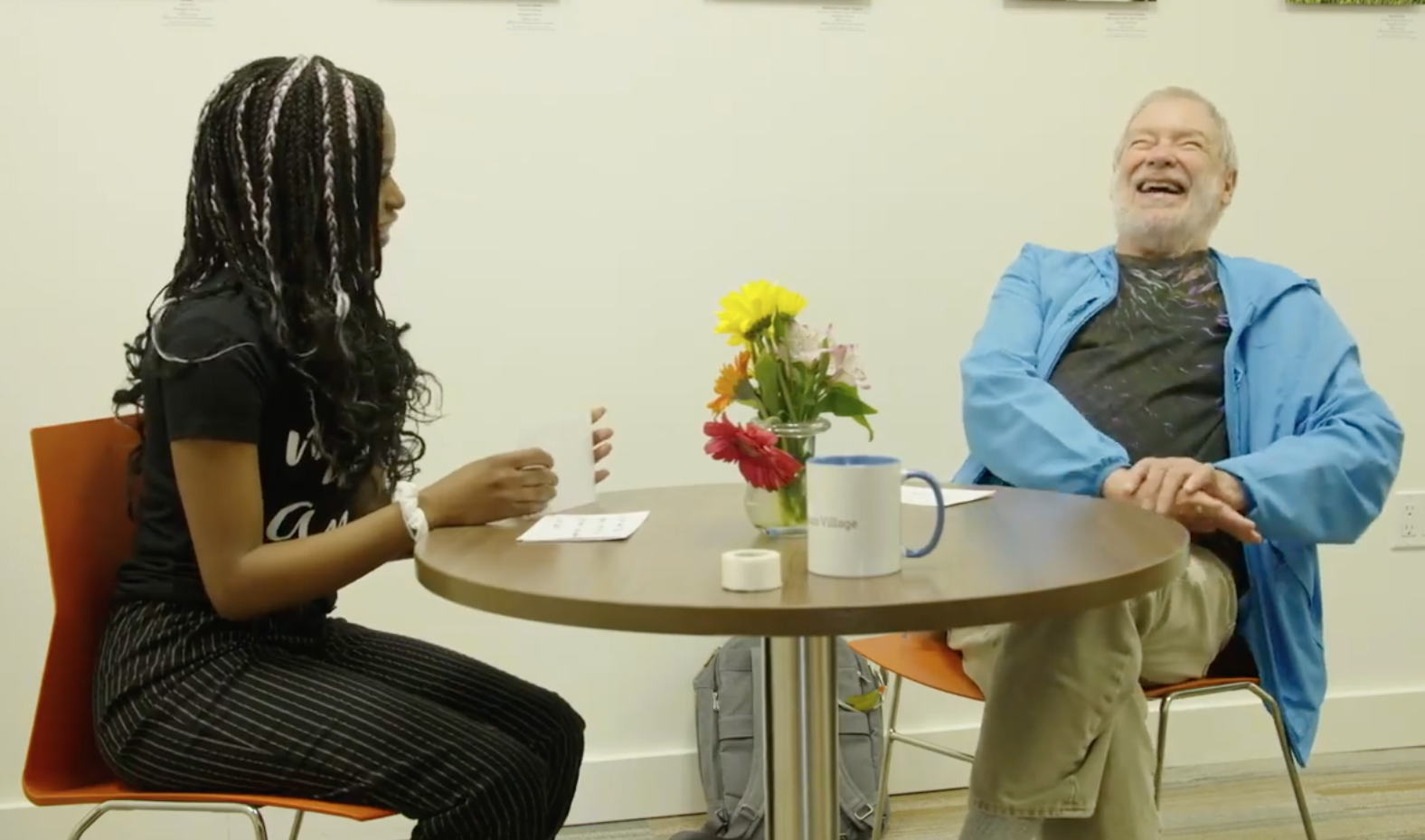
It helps keep things in perspective. “We think we have it bad when we’re working from home with our significant other or roommates, but then you start to realise there are people who are literally so alone,” Steele says. “A half-hour call can really brighten their day.”
For paid companion positions, both Papa and Mon Ami screen potential candidates through in-depth interviews, as well as through background and motor vehicle checks. (The volunteer bank is far less intensively screened, though still requires an application.)
While a majority of companions have relevant experience – as nurses, social workers or medical school students – Zhang says Mon Ami looks for those who possess social and emotional intelligence skills, those who “can be present and can engage with someone who is very different from you”.
It’s an appealing gig for students with flexible schedules or for those who now find themselves with time on their hands. (Mon Ami companions work an average of four hours per week.) But the benefits go both ways. The startup routinely hears that the work does as much for the emotional wellbeing of many of its companions as it may do for the seniors.
Dangerfield-Cha is clear that Mon Ami is but one option in an industry suffering from a senior care shortage. About 10,000 people turn 65 each day in the USA, and 43 per cent envision ageing in their primary home. Estimates from the US Census Bureau indicate that Americans over the age of 65 will comprise nearly 20 per cent of the total population by 2030.
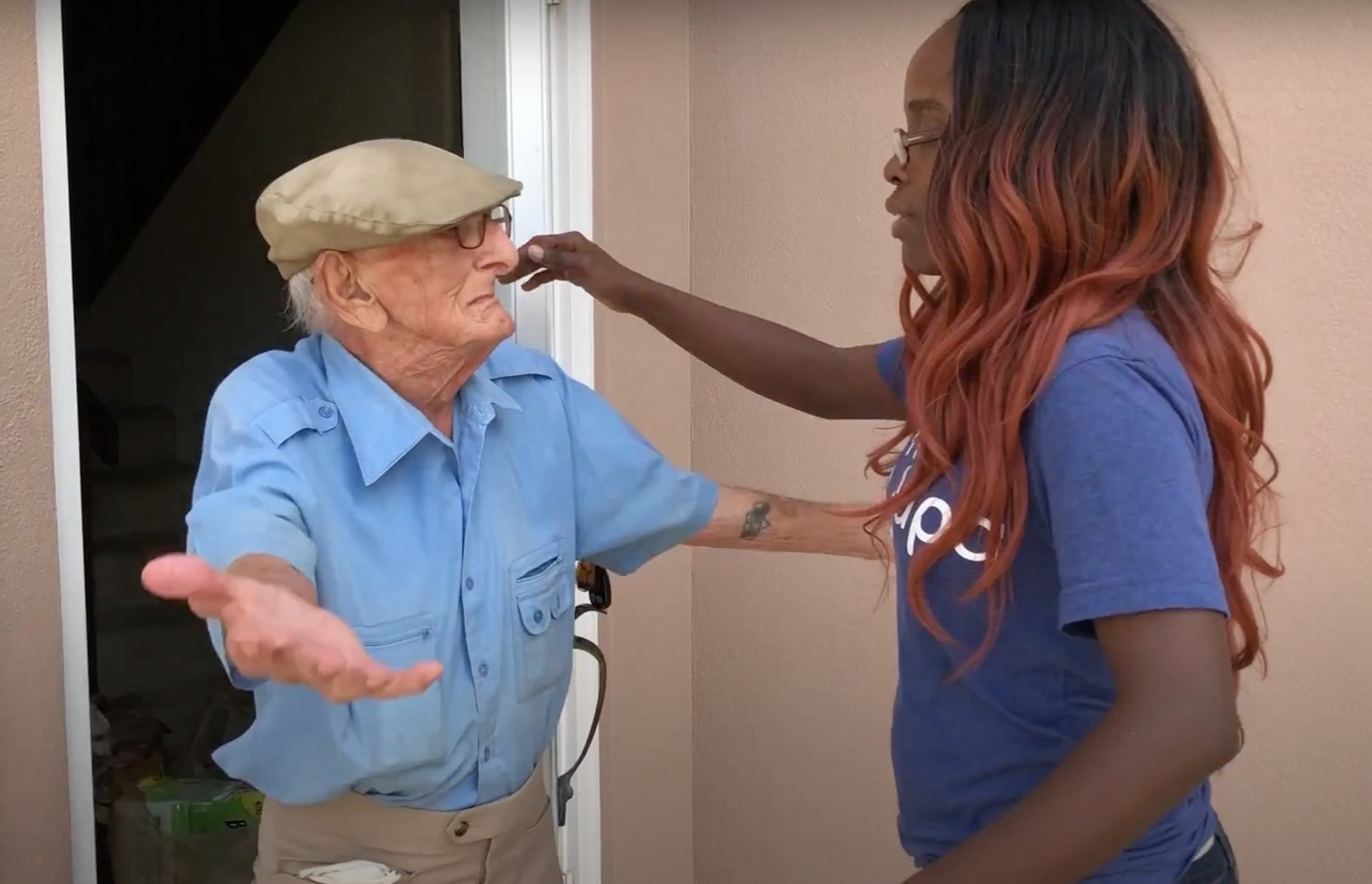
“The reality is that as our society is ageing more rapidly than at any other time in history, we need all types of support,” Dangerfield-Cha says. “We’re going to need all of it – and then some.”
To that point, AARP data shows that those who are socially isolated cost an additional $6.7bn in Medicare spending; Papa already works with 10 health insurance plans, including Humana, Aetna and Florida Blue, and the company is pursuing more partnerships, including offering the service to new parents and other caregivers. It has raised $12.6m in venture funding to date.
As it expands, Papa is also working to safeguard its continuing companionships, like that of Figueroa and Rodger. Not that the two need much oversight. They already have big plans once the world reverts to normal. “I want to get into golfing now, thanks to him,” Figueroa says of Rodger. “As soon as we’re clear to go out, we’re definitely going to get out there in the field.”
Rodger, excited by the prospect of a day on the putting green, couldn’t contain his enthusiasm – or his grandfatherly tendencies. “I have some pointers,” he says. “I could help you.”
© The New York Times
Join our commenting forum
Join thought-provoking conversations, follow other Independent readers and see their replies
Comments